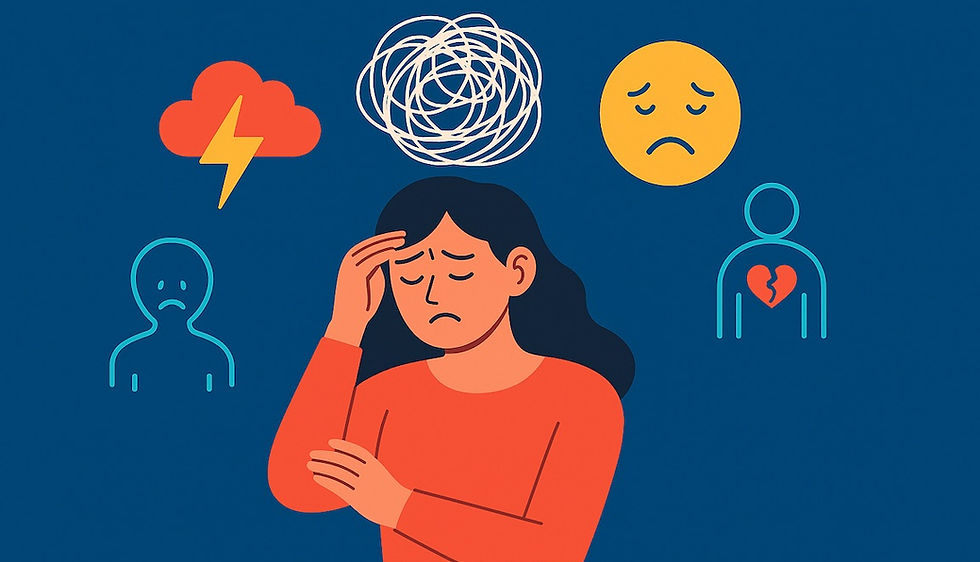The Hidden Signs of Unresolved Trauma
- T and C Psych

- Jun 22, 2025
- 2 min read
Trauma isn’t always obvious. While many people associate trauma with specific events—like car accidents, abuse, or natural disasters—the emotional and psychological effects can linger in subtle, often unrecognized ways. For those dealing with unresolved trauma, the signs can manifest quietly, sometimes blending into daily life and affecting relationships, mental health, and overall well-being. At T and C Psych, we believe understanding these hidden signs is the first step toward healing.

1. Persistent Anxiety or Hypervigilance
If you feel constantly “on edge” or are always scanning for danger, even in safe environments, it could be a sign of unresolved trauma. This heightened state of alertness is your nervous system staying stuck in fight-or-flight mode.
2. Emotional Numbness or Detachment
Unresolved trauma can lead to emotional suppression as a coping mechanism. You might feel disconnected from your emotions, others, or even your own identity. People with trauma often describe this as feeling “flat” or like they’re just going through the motions.
3. Difficulty Trusting Others
Trust issues, especially in close relationships, are common among trauma survivors. You may struggle to open up or feel suspicious of others’ intentions, even without clear reasons.
4. Self-Sabotaging Behaviors
Engaging in harmful patterns—like substance abuse, procrastination, or toxic relationships—can be a subconscious attempt to manage or distract from unresolved trauma. These behaviors often reinforce feelings of shame or helplessness.
5. Physical Symptoms Without a Medical Cause
Chronic headaches, stomach issues, fatigue, and even unexplained pain can be psychosomatic symptoms of trauma. When trauma is stored in the body, it often presents as persistent physical discomfort.
6. Flashbacks or Intrusive Thoughts
Not all flashbacks are vivid or dramatic. You may experience subtle, intrusive memories, dreams, or emotional reactions tied to past events—sometimes without realizing their source.
7. Avoidance and Emotional Triggers
Avoiding certain places, people, or situations that remind you of a past event is a common trauma response. You might also feel intense emotions when triggered by something seemingly minor, like a sound or smell.
8. Overachieving or Perfectionism
While often praised in society, perfectionism can be a way to exert control in response to the chaos caused by trauma. Overachieving can mask low self-worth or a fear of failure rooted in past pain.
Healing Is Possible
Recognizing these hidden signs is a courageous first step. Trauma is deeply personal, but you don’t have to face it alone. At T and C Psych, our experienced team of mental health professionals provides trauma-informed care tailored to your unique needs.
If any of these signs resonate with you or someone you care about, reach out to T and C Psych today. Healing begins with the right support—and we’re here to help every step of the way.





Comments